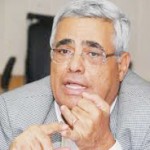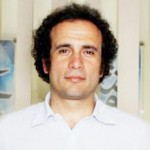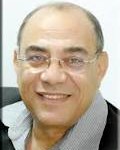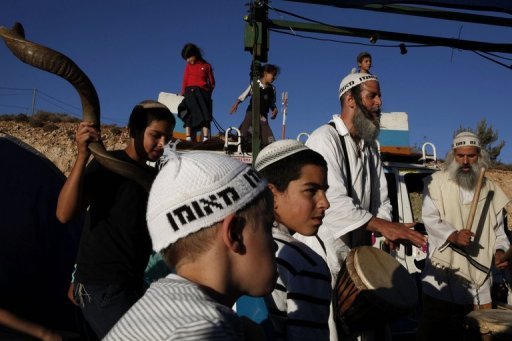After anti-Muslim Brotherhood protests gained public and political attention on 24 August, columnists in several Egyptian newspapers examined the primary reasons behind the demonstrations. Many supported the idea and condemned assaults against protesters, accusing the Muslim Brotherhood of being intolerant of opposition and criticism. Others took the time to consider the protester’s demands, rather than writing them off as political adolescents.
Today and yesterday
Mohamed Salmawi
Al-Masry Al-Youm newspaper

Salmawi criticises the Muslim Brotherhood for allowing their militant supporters to hurl rocks at those who protested against the once-banned group on 24 August. These attacks imply a severe shortcoming in President Morsy’s tolerance towards democracy. In Salmawi’s estimation, the Muslim Brotherhood and their aggressive supporters are typical of the chaos and violence shaking the country today.
The author considers the alleged Molotov cocktail attack on 16 buses arriving from Dakahliya, Monofiya and Upper Egypt. Many have been pondering the identity of the so-called ‘third party’ responsible for the attack. Salmawi believes the ‘third party’ is, in fact, none other than the Muslim Brotherhood.
He condemns Morsy’s sugar-coated statements made repeatedly during his presidential campaign in which he vowed to leave the Presidential Palace if protestors ever chanted against him. Now that anti-Morsy demonstrations have been organised in several Cairo neighborhoods, Salmawi concludes that the Muslim Brothers won’t tolerate opposition or criticism. Finally, he criticises state television for describing the protestors as numbering in the ‘tens,’ when they numbered much more.
Analysing the current political scene
Hassan Nafaa
Al-Masry Al-Youm newspaper

Nafaa considers the volatile relationship between the Muslim Brotherhood and the Supreme Council of Armed Forces (SCAF). Dissecting the complex connections between the once-banned group and the once-ruling military council, the political analyst states that soon after the outbreak of the 25 January revolution, both parties realised that they shared some common goals and interests. This led them into cooperative relations in many cases and to head-on clashes in others.
One of the common goals shared between SCAF and the Muslim Brotherhood was their desire to prevent other political and revolutionary groups from gaining power. At the time though, the Armed Forces were not fully aware of the Muslim Brotherhood’s hunger to ‘eat up all the slices of the cake.’ It was only after the parliamentary elections when the Freedom and Justice Party dominated the Parliament that Nafaa estimates that SCAF and the Muslim Brotherhood really came into conflict and the military became mindful of the Brotherhood’s real threat. In reaction, SCAF woke up to announce the constitutional declaration, regarded by Nafaa as the most fallacious move to be taken by SCAF during the transitional period.
Interactions could lead to massacres
Emad Al-Din Hussein
Al-Shorouk newspaper

Hussein warns of the risk of violent confrontations between rival protesters at demonstrations. He considers a demonstration on Thursday where a number of artists protested in Tala’at Harb Square against the Muslim Brotherhood’s attempts to limit artistic freedoms. As artists chanted against the rule of the Muslim Brotherhood Hussein said a pro-Morsy group approached to attack the liberal group, chanting slogans in favour of the President. Interactions like these have the potential to escalate into massacres. The proper place for such interactions between representatives of opposing views is in a television talk show; sometimes, for reasons of objectivity this is the best place for expressing such views.
The writer wonders at the motives of Muslim Brotherhood supporters who face off with liberals in a demonstration? Why do both groups have to meet in a conflicting area and trigger violence? As Hussein points out, it is almost impossible that either view will be changed amid a quarrel that takes place during demonstrations. Wrapping up his column, Hussein warns against unnecessary gatherings of conflicting groups, fearing possible violence and bloodshed.
On 24 August
Amr Hamzawy
Al-Watan newspaper

In an attempt to scrutinise the motivations behind the 24 August anti-Muslim Brotherhood protests, Hamzawy lists a number of his observations of the event. Despite declaring his opposition to the demonstrations against the Muslim Brotherhood, almost calling it a ‘fascist’ move, the analyst stresses that peaceful protest is one of the most democratic means of freedom of expression. It is the duty of the state and its police forces to shield protestors from harm. Hamzawy condemns the assaults against the protestors and the attempts to safeguard the Muslim Brotherhood and their headquarters. He also criticises Islamists who have vilified the anti-Muslim Brotherhood demonstrations as a stage of ‘political adolescence.’
Moreover, the writer places emphasis on the goals and demands of the 24 August protests noting that the Government should wisely consider the calls behind such protests instead of reacting with attacks and criticism. It would be to the Government’s benefit to understand the viewpoint of its opposition and work on resolving as much conflict as possible.
Finally, Hamzawy points out that Morsy and his government should rethink the ways they comprehend opposition and the tools of expression. In his estimation, the anti-Muslim Brotherhood protestors should be a reminder to Morsy and his group of the deep roots of public legitimacy and the danger it could pose to his reign.
For those who wish failure for President Morsy
Nabil Omar
Al-Tahrir newspaper

Sharing some of the analysis on the roots behind 24 August protests, Omar questions the success of the demonstrations that were called by controversial figures like Mohamed Abu Hamed and Tawfik Okasha. In spite of the failure of the anti-Morsy demonstration, Omar expects more anti-Muslim Brotherhood protests in the future. The important factor, in the writer’s estimation, would be grounded reasons for such protests to occur.
Morsy should not be brought down without being given a real chance for improvement. It is understandable that Egyptians should stand against all moves that aim at fortifying the skeleton of the Muslim Brotherhood. But thinking about Morsy as the captain of Egypt’s ship, ordinary citizens should help him safely lead the boat instead of veering into unchartered and dangerous waters. To conclude his piece, Omar estimates that the primary reasons for anger might stem from Morsy’s last decisions that appeared for many beneficial only to the Brotherhood, not to the rest of the Egypt.



